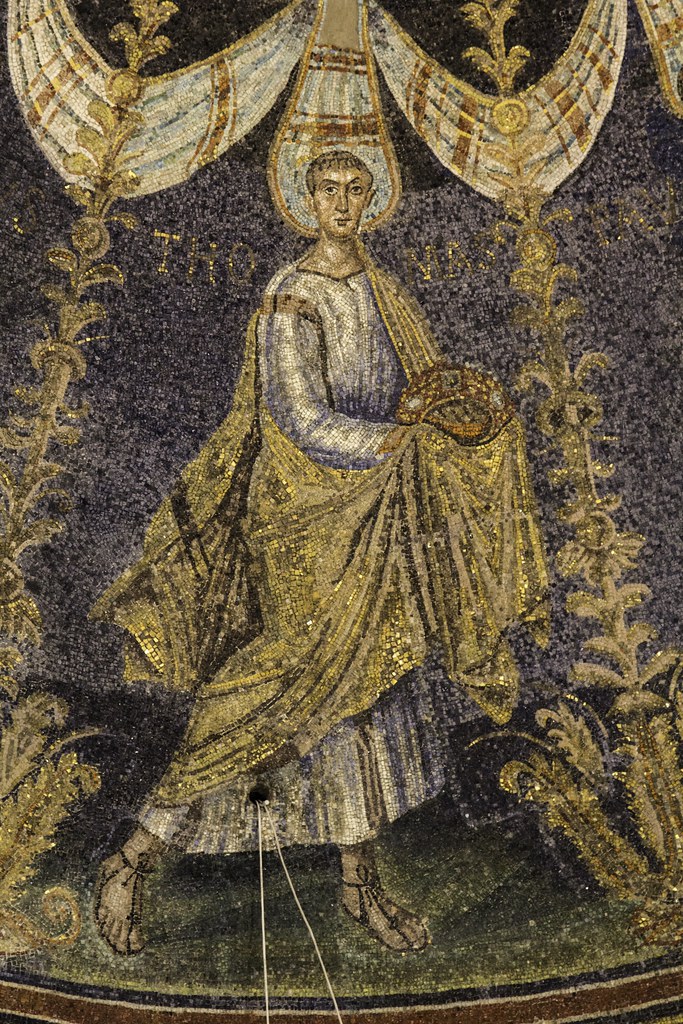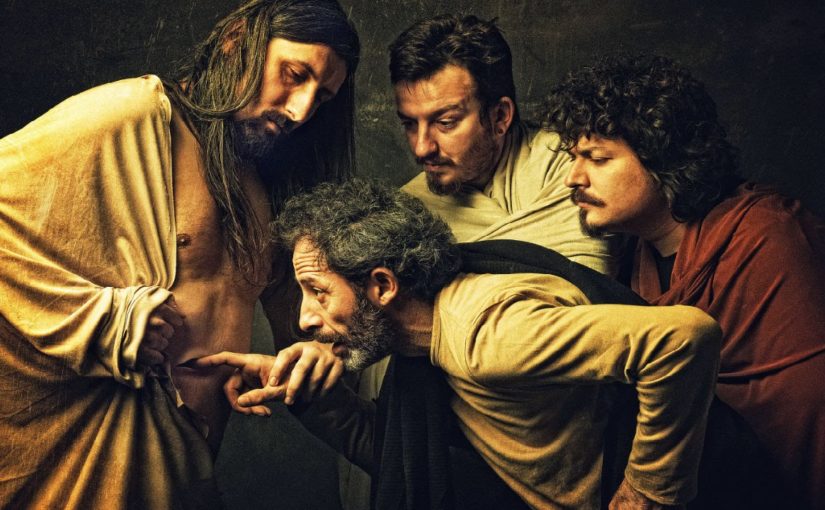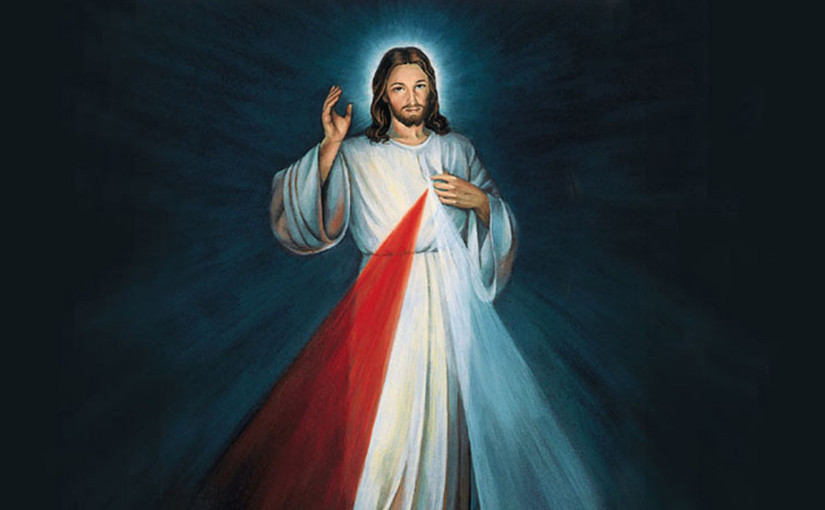Today’s readings
Today, on the eighth day of Easter, which we still celebrate as Easter Sunday, we celebrate Divine Mercy Sunday, which was instituted by Pope Saint John Paul II, of blessed memory. On this Sunday, we remember that the resurrection of our Lord was an act of intense mercy for us sinners, obliterating the power of sin and giving us the possibility of life eternal, if we are willing to live the Gospel and turn away from our sins.
And even though His Holiness did not choose the Gospel reading we have for today, I don’t think he could have chosen a better one to illustrate God’s Divine Mercy. Today, Saint John recounts the evening when the disciples were together, save for Thomas, pretty much just trying to figure out what to do next. So far that day, they had come to find the tomb empty, and Mary Magdalene reported that she had seen the Lord alive. Obviously, they needed to process what was happening.
But they were incredibly afraid. They knew that they could easily suffer the same fate as the Lord, and feared that the Jews were hunting them down. I think in some ways, too, beginning to realize that the Lord had truly risen, they were afraid that they might not be doing what our Lord expected of them. So they meet together in perhaps the same upper room in which they had eaten the Last Supper, with the doors locked for fear of their pursuers, and they’re talking things over. Suddenly, into their confusion, the Lord appears, bringing his gift of peace, and bestowing on them the Holy Spirit. Immediately, they come to believe and go out to do what believers do: tell the story.
Which brings us to poor Saint Thomas, who, for whatever reason, was not with them when the Lord appeared. It’s important to remember that the only reason the others believed was because they had received the Holy Spirit: it takes that gift of Divine Mercy to come to understand our Lord’s message. Since Thomas had not received that gift, he’s at a different place on the faith journey than the rest of them. So before we get too hard on “doubting Thomas,” I think he should get a bit of a break here.
Then our Lord comes and gives him what he asked for: a direct, personal, intimate encounter, in which his questions are answered and he is able to hold his Lord and come to full belief. Here, he too receives the Spirit, and can then go out to preach the Gospel to those our Lord entrusts to him.
I think we see Divine Mercy here in a few different ways. First, we see it in our Lord’s wounds, which he showed to Thomas at his request. Jesus truly suffered in the flesh for us, dying an agonizing death on the Cross, that death that paid the price for our own sins. He paid the price for us, and he paid it in a horrible, painful, public way. No one dies for those he doesn’t love, and so we see in our Lord’s wounds his immense Divine Mercy for us.
We see Divine Mercy in the gift of the Holy Spirit. It takes the indwelling of the Holy Spirit, which we receive in baptism and confirmation, to embark on a life of faith. Confusion reigns where the Spirit has not been received: that was the case for the disciples including Saint Thomas, and it is the case for all of us. Without the Holy Spirit, we can’t know God or enter into relationship with him. But thanks to his Divine Mercy, we have the gift of the Holy Spirit at our disposal.
And finally, we see Divine Mercy in the interaction with Saint Thomas. Jesus could have left Thomas in his doubt. He wasn’t there with the others, he refused to believe, so let him sort it all out. But our Lord wouldn’t – couldn’t – do that. Instead, he pursues Thomas, and gives him what he needs to believe. He does that with us too, never giving up on us. That’s Divine Mercy.
Here’s the message though. Like our Lord’s other gifts, Divine Mercy isn’t meant to be received and then kept in a neat little box on our prayer shelf. Our world is desperate for God’s Divine Mercy. There are hungry people to be fed, there are people who need to know the Lord, there is terror and war and animosity that needs to be drenched in God’s love, there are people in our own lives who need our forgiveness. So we disciples, who received the gift of the Holy Spirit as a direct outpouring of God’s love, need to take that Divine Mercy to a world that needs it so desperately.
Holy God, holy mighty one, holy immortal one, have mercy on us and on the whole world.
Jesus, I trust in you!






You must be logged in to post a comment.